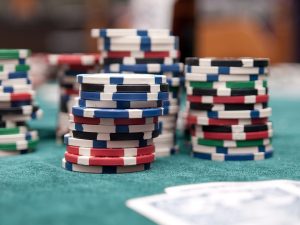
How do most people watch videos? They sit idly, listen to the speaker, and are “checked out” until they hear or see something impressive or something they disagree with. If something exciting happens, they get interested, but their interest is tied to the theoretical part of the mind. Therefore, it is good to watch videos to develop your theoretical “muscles,” but not so good for practicing.
Do you remember what we discussed about the benefits of commenting? So, watching videos can be very useful here to simulate sweating. If you watch a video and imagine that you are actually playing the hands shown on the screen, if you can really visualize them, this action will activate completely different neural networks in your brain than passive watching. Then you can imagine that the person filming is talking directly to you and telling you what to do. I would even suggest actually pressing that button on the screen as if you were really playing poker. The first time you hear it, it may sound silly because we are identified with the idea that poker is a mind game, that knowing what to do and doing it is one and the same undifferentiated skill set. Each video is an opportunity to fully immerse yourself in another player's mind, to test your physical and mental limits in a safe environment. All it takes is visualization and dedication.
Always keep in mind the power of fear and the walls of the mind, remember how difficult it can be to just press a button. You might think it's not that important, but the difference between making a bluff and thinking about it but not doing it is more than just pressing a button. If you've seen a certain bluff many times in many videos but never actually performed it yourself, it's usually just the simple fear of pressing the button that holds you back. Respect the physicality of poker. A simple action, such as practicing going all-in or making a bold bluff by pressing the button on a paused video, can make a big difference in your next poker session.
Practice as if you were really playing. Any action that can make your practice, learning, and preparation as close as possible to real poker will greatly enhance your skills. Your mind is not as smart as you are – it can be easily fooled. Take advantage of visualization, different methods, and detailed rehearsal benefits.
Finally, let's look at purposeful training. If we want our practice to match the actual performance as closely as possible, we should consciously practice this while playing poker. Training with a specific goal provides an excellent opportunity for this.
The first and simplest purposeful training is attention separation. If you want to practice 3-barreling, focus on that during the session. Pay extra attention every time there is an opportunity for a third barrel. In short, make your session revolve around 3-barreling, everything else should take a back seat. It may seem too simple, but it is very effective in improving a specific skill.
Of course, remember the three types of learning we have already discussed – theory, practice, and emotions. By separating your attention during the game, you can strengthen your theoretical or emotional neural networks. Let's say you have an emotional problem, expecting to lose every coin flip. You can play a purposeful session where you practice mentally imagining that you will win every coin flip. If you know that you are weak in certain situations and can separate and neutralize your natural reaction, such a session will significantly strengthen your learning process and growth.
The second type of goal-oriented training is an artificial  experiment. During such an experiment, you will temporarily create rules to help you strengthen a specific skill for a certain period of time.
experiment. During such an experiment, you will temporarily create rules to help you strengthen a specific skill for a certain period of time.
What does this look like in reality? Let's say you have a lot of trouble dealing with 3-bettors out of position. You can create an artificial experiment by dropping a few limits down and playing a session where you call every 3-bet out of position and try to play well in the post-flop stage. By isolating yourself and constantly facing such a situation, you will quickly gain experience and force yourself to confront your preconceived notion of what it means to be in such a situation. An artificial experiment is valuable not only for new experiences or opportunities for understanding but also for breaking a recurring negative belief, such as: “it's impossible to play well when calling a 3-bet out of position.”
If you have a good strategy or psychology coach who guides you in the right direction during the learning process, ideally, you should still have a regime where you learn all these techniques by strengthening your weak points. But even without a coach, you can easily do this. By incorporating a sufficient amount of risk, mental maps, and good thorough preparation into your schedule, you will balance your growth in poker.
Haseeb Qureshi





